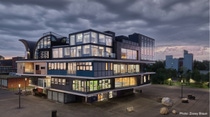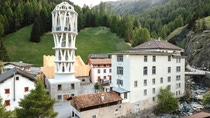Qui sommes-nous ?
Innovation Requires Networks and Inspiration
How BASF is promoting innovation
The chemical industry, including BASF, regards itself as a key driving force in innovation. With new products, materials, systems and technologies, BASF is making a crucial contribution to devising sustainable solutions to the pressing problems of the future. BASF researchers in Scouting & Academic Collaborations units worldwide are working on analyzing trends in technology, identifying promising technologies for the future and seeking out groundbreaking innovations.
To make sure that opportunities for innovation can be identified rapidly, BASF works with academic partners as well as internal and external industry experts.
The Scouting & Academic Collaborations unit at BASF links external networks with internal units to find, evaluate and develop attractive new technologies until they are ready for the market. The first reliable results regarding technical feasibility and market relevance are pivotal in the process of realizing innovations at BASF.
Why BASF relies on co-creation
In the modern world, innovation comes not from individual companies or research laboratories but through the complementary and interdisciplinary exchange of knowledge and empirical findings. Cutting-edge concepts arise as a result of networking and mutual inspiration. BASF views being actively involved in such innovation processes as essential to identifying new approaches at an early stage and enabling the company to broaden its range of products.
Partnerships are crucial in this respect. A diverse and international network allows new ideas to emerge and give fresh impetus to BASF's work in research.
The opportunities that NEST presents for BASF
.jpg)
With its Scouting & Academic Collaborations unit on the campus of the Swiss Federal Laboratories for Materials Science and Technology (Empa) in Dübendorf, Switzerland, BASF combines the know-how of its experts with the excellence of Swiss research institutes, such as Empa, the Swiss Federal Institute of Technology (ETH) in Zurich and the Swiss Federal Institute of Technology in Lausanne (EPFL), as well as other industrial partners.
At NEST, the modular innovation building operated by two Swiss research institutes, Empa and Eawag, new technologies, materials and systems for sustainable building are researched, tested, developed and validated in real-life conditions. Among the subjects researched is how the use of resources and energy can be made more sustainable and more suitable for the circular economy. Potential partners and customers can assess the possibilities offered by innovative technologies on the basis of actual physical objects.
The close cooperation with partners from research, business and the public sector speeds up the process of getting innovative construction and energy technologies to market. BASF's previous projects at NEST demonstrate that when BASF researchers work closely with external partners, ideas can rapidly evolve into innovative solutions.
The sustainable use of energy and resources as well as the circular economy are key issues for NEST and for BASF. Research into the built environment ranges from the development and application of new construction materials, such as engineering plastics, mineral insulation and materials for the timber industry, to the use of highly integrated digital planning systems and production processes.
.jpg)
.jpg)

